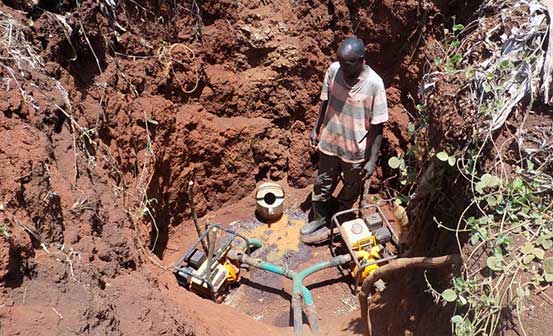×
The Standard e-Paper
Home To Bold Columnists

After persevering a lot of trouble, including insufficient water and pumps breaking down for years, Dennis Munene finally designed an ingenuous way that made his crops flourish and turned his farm green.
Munene has designed a unique water pumping system by reducing the depth between the water source and the pump. He says this now pumps twice the amount of water than from his 50-foot well than it was initially.